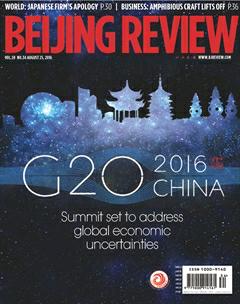Shenzhen-HK Stock Connect: Another Step Forward
2016-09-13
Shenzhen-HK Stock Connect: Another Step Forward
Since July, there's been much discussion over the imminent Shenzhen-Hong Kong Stock Connect program, focusing to a large extent on which companies will benefit the most from the scheme. However, as another major step in China's efforts to open up its capital markets after the Shanghai-HK Stock Connect scheme,the Shenzhen-HK Stock Connect program,which was approved on August 16, has far more significance beyond just benefiting stocks.
The program is a vital step in connecting Chinese mainland stock markets to Hong Kong's capital markets and an important measure of China's financial reforms. It will not only open a new window connecting China's securities markets with the world, but also facilitate the internationalization of the yuan and underpin Hong Kong's status as an offshore yuan hub.
To start with, it will open up a new channel for China's capital markets to connect to the world. Following the Shanghai-HK Stock Connect program, the launch of the Shenzhen-HK Stock Connect scheme will further increase the number of overseas investors in China's A-share market, improving the investment structure of the market.
While connecting two markets, the scheme can promote the integration of their respective investment philosophy, valuation systems and transaction modes. It will also expand the two-way opening up of China's capital markets by offering overseas investors with more investment channels and targets. Further,in conjunction with the Shanghai-HK Stock Connect, the scheme will realize better connection of the mainland and Hong Kong capital markets to offer global investors a one-stop solution to investing in China.
Second, it's a vital step in pressing ahead with the internationalization of the yuan, which is a systematic project that requires a certain depth and scale of the currency's use.
For years, China's central authorities have been actively opening up the nation's capital markets in a bid to promote two-way fow of the currency, such as by introducing schemes such as QFII (qualified foreign institutional investor), QDII (qualifed domestic institutional investor), RQFII (Renminbi qualifed foreign institutional investor) and RQDII(Renminbi qualified domestic institutional investor).
In order to speed up its internationalization process, the yuan's status as a global investment currency should be fortified,besides being a settlement and reserve currency. The launch of the Shenzhen-HK Stock Connect will further cement the yuan's status in global investment and promote its convertibility under the capital account, a vital link in the internationalization process. In the meantime, the stock connect scheme will make it easier for overseas institutions to issue yuan-denominated bonds in China and simplify foreign exchange administration under the capital account.

The exterior of the Shenzhen Stock Exchange
Third, the scheme will fortify Hong Kong's status as an offshore yuan center. Compared with the Shanghai-HK Stock Connect, the Shenzhen-HK Stock Connect will have a larger impact in that regard,as the two markets in the latter program interact much more closely—with personnel exchanges, economic and trade links and policy connectivity—than those in the former program. Investors in Shenzhen and Hong Kong also understand each other's market more deeply, and therefore the program is quite appealing to them.
Furthermore, the Shenzhen program will be more effective in connecting the yuan with overseas markets and pushing forward an adequate flow of overseas yuan capital back and forth between Shenzhen and Hong Kong. Although Hong Kong has the largest yuan capital pool, its yuan products lack variety, and trading is not active enough. The launch of the Shenzhen-HK Stock Connect will increase investment channels for offshore yuan products and help cement Hong Kong's status as an offshore yuan hub.
Last but not least, the scheme will lay a solid foundation for China's A shares to be included in the MSCI index. Latest regulations released by China's central bank and securities regulator have demonstrated to global investors China's firm determination in steadily opening up its capital markets. However, the A shares failed in June to gain inclusion in the MSCI index for the third time. At this critical moment, the launch of the Shenzhen-HK Stock Connect will further fortify investor confdence in China's capital markets and once again convey to the world China's frm stand in opening up its markets.
A critical premise for China's A shares to be included in the MSCI index is that global capital can invest in stocks in both Shanghai and Shenzhen exchanges. Therefore, the launch of the Shenzhen-HK Stock Connect is bound to attract more international investors and capital, laying a solid foundation for the A shares' inclusion in the MSCI index. ■
